Now that the Orlando and Utah summer leagues have wrapped up, the showcase that is NBA Summer League arrives in Las Vegas. And the headliner is the 2017 draft class, as its members make their first impressions before the ink dries on their contracts. But you never know who outside of the somewhat-known commodities will emerge and give themselves a chance to make an NBA roster for the 2017-2018 season based on their play at the Thomas & Mack Center or Cox Pavilion.
Below is a preview for the 24 teams participating in the Las Vegas Summer League from Friday through July 17. This version will feature the 14 Western Conference teams participating -- every West team outside of the Oklahoma City Thunder. You can find the Eastern Conference teams here.
Dallas Mavericks
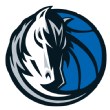
First game: Saturday vs. Bulls
Dennis Smith Jr.: The ninth overall pick in this year's draft, Smith didn't play for the Orlando-champion team that represented Dallas, but the Mavs' future will headline the Vegas side. Smith is Dallas' highest-drafted rookie point guard since Jason Kidd, who was the 1994-1995 co-Rookie of the Year. Smith was also the last of the five point guards to be taken in the top 10 of the draft, and it will be fun to see if he comes out looking to make a statement.
Yogi Ferrell: Ferrell became only the third Mavericks rookie to be named to an All-Rookie team since Kidd in 1995, despite being undrafted and waived by Brooklyn in December. Now Ferrell will be backing up Smith, but Ferrell showed his value with a 2.77 assist-turnover ratio and a high-volume 40.3 percent clip from 3-point range in his 36 games with Dallas. It will be interesting to see if Ferrell and Smith share the floor at times to allow Smith to focus on getting buckets.
Johnathan Motley: It was a bit of a surprise that Motley wound up going unselected in the 2017 draft, and the Mavericks scooped him up on a two-way contract. He already has one highlight, making the winning field goal in overtime of the Orlando Summer League championship. The Baylor product was named a second-team AP All-American, the only first- or second-teamer to go undrafted this year. Motley averaged 17.3 points and 9.9 rebounds as a junior, and he would be a strong fit on a Dallas team that was dead last in offensive-rebounding percentage in 2016-2017.
Denver Nuggets
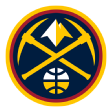
First game: Friday vs. Rockets
Tyler Lydon: The Nuggets acquired 2015 lottery pick Trey Lyles from Utah in the same trade that allowed Denver to select Lydon 24th overall. Though Lyles isn't a plus rebounder and spent an inordinate amount of his second NBA season launching 3s at a below-average clip (31.9 percent), Lydon projects as a plus athlete at 6-foot-10 with similar floor-stretching ability and more production on the glass and on defense. The question for Lydon is whether or not he can bang at only 215 pounds.
Monte Morris: Morris, a late second-round pick, compiled a supreme 4.65 assist-turnover ratio in his four seasons at Iowa State. Where he fits on this Nuggets roster is an open question, as Denver spent top-10 picks on point guards Jamal Murray in 2016 and Emmanuel Mudiay in 2015. Morris is arguably a more comfortable distributor than both young players already, yet veteran point guard Jameer Nelson is still on the books for 2017-2018. Morris definitely needs to shine despite his collegiate accolades to make a case for a roster spot in the fall.
Juan Hernangomez: The highlight of Hernangomez's rookie season was in February, when he lit up the Warriors for 27 points on 9-of-17 shooting, including 6 of 10 on 3s. The 3s weren't really a fluke, either, as Hernangomez made 40.7 percent from deep on the season. Hernangomez is a power forward only at 6-foot-9 and 235 pounds with minimal shot-blocking ability, but his shooting and rebounding chops should keep him ahead of the other young Denver bigs behind new acquisition Paul Millsap.
Golden State Warriors

First game: Saturday vs. 76ers (10:30 p.m. ET, ESPN2)
Jordan Bell: The Warriors got a lot of praise at the Bulls' expense when they acquired the draft rights to second-rounder Bell. The spot that was James Michael McAdoo's for the past three seasons could be earmarked for Bell, a superior athlete who averaged well over two blocks per game. Bell also finishes with ferocity, so he should allow for many crowd-pleasing opportunities.
Patrick McCaw: Another player whose presence on the roster brings praise for the Warriors. McCaw's numbers and percentages weren't that impressive as a rookie, but he looked as though he belonged on both ends as the Warriors put him on the floor with a wide variety of lineups. McCaw won't turn 22 until October, and it will be interesting to see if he can do more as a featured part of an offense.
Kevon Looney: When Looney was selected with the last pick in the first round of the 2015 draft, he was heralded as a steal, despite concerns about his hip. Well, two years later, Looney has become a forgotten entity. He played a total of 46 minutes after the All-Star break, and he still has yet to see even garbage time in two postseasons. He's probably Player No. 15 on the roster, and with the Warriors also taking a look at 2016 first-round center Damian Jones, Looney might be running out of opportunities to show he belongs.
Houston Rockets
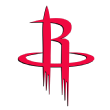
First game: Friday vs. Nuggets
Isaiah Hartenstein: The 43rd pick in the 2017 draft, Hartenstein has an interesting background: born in Oregon, moved to Germany as an adolescent, and played in Lithuania this past season. The 7-foot southpaw will spend his rookie season overseas, but observers will get a chance to see him in Houston's system before he takes off.
Zhou Qi: The 43rd pick in the 2016 draft, Zhou agreed to a contract with the Rockets and will make his debut this fall. NBA commissioner Adam Silver lamented the absence of Chinese players in the NBA since 2012, so there is great interest in how Zhou performs even outside of Houston. On the court, the 7-foot-2 Zhou has 3-point range and was an elite defender in China, but his slight frame will be an obstacle he must overcome early on.
LA Clippers

First game: Friday vs. Lakers (8:30 p.m. ET, ESPN)
Sindarius Thornwell: Thornwell's combination of four years at South Carolina and suspension in December probably caused him to slip all the way to the 48th pick in the draft. With that noted, Thornwell is a strong shooting guard who was the NCAA tournament East Region Most Outstanding Player this spring. Thornwell made only 39.2 percent of his field goals in college, though that mark was at 44.5 percent as a senior. Thornwell also made 39.5 percent of his 3-pointers as a senior to go with exceptional averages of 21.4 points, 7.2 rebounds, 2.8 assists, 2.1 steals and 1.0 block per game. Let's see if he can be the rare rookie who convinces Clippers coach Doc Rivers that he should be on the active roster.
Brice Johnson: Speaking of rookies that didn't get to play under Rivers: Johnson was a four-year player at North Carolina, and as soon as he was selected 25th overall by the Clippers in 2016, folks lamented that he wouldn't see the light of day as a rookie. A preseason back injury didn't help, but Johnson played a grand total of nine minutes in the regular season for the Clippers and served as a healthy DNP-CD in each playoff game. Blake Griffin is back under contract with the Clippers, but he's been very injury-prone over the past three seasons. There is a path to minutes for Johnson, who averaged 17 points and 10.4 rebounds as a senior at UNC, if he can remind people why he was a first-round pick a year ago.
Kendall Marshall: Speaking of Tar Heels -- Marshall won't be a priority play for the Clippers, not with rookie second-round point guard Jawun Evans on the roster. And the Clippers just signed Milos Teodosic to serve as an unconventional option toward replacing the departed Point God, Chris Paul. But the 13th pick of the 2012 draft has always been a strong passer, as his clip of 9.1 assists per 36 minutes shows. Among all players with at least 3,000 minutes played since 2012, only Paul, Rajon Rondo, Ricky Rubio, John Wall and Russell Westbrook have averaged more assists per 36 minutes. Sure, Marshall can't score, was athletically deficient even before a 2015 ACL tear, and doesn't rebound. But how many fantasy basketball owners would want to see Marshall back in the league for the sole purpose of streaming his dimes?!
Los Angeles Lakers
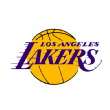
First game: Friday vs. Clippers (8:30 p.m. ET, ESPN)
Lonzo Ball: All of those D'Angelo Russell fans have been advised to turn their attention to the Big Baller Brand. The Lakers wasted no time feting Ball as the face of the franchise, with Lakers exec Magic Johnson asking young Ball to leave some records in the books for him. For the first time ever, Lakers fans will be overshadowed in the stands by the potential histrionics of LaVar Ball, and it shall be glorious. Also, Lonzo's pretty good, and the fast-paced action in Vegas suits his style well. This should be a fun week to observe how Ball asserts himself among several players who figure to have a shot in the Los Angeles rotation in the fall, such as small forward Brandon Ingram and center Ivica Zubac.
Josh Hart: The 2016 NCAA champion out of Villanova could have an outside shot at what is a vacant starting shooting-guard spot (assuming Jordan Clarkson will return to a bench role). Hart would be an interesting complement to Ball -- four-year senior, 6-foot-5, 209 pounds, senior-year shooting percentages of .510 overall, .404 from deep and .747 from the line and a co-Big East Defensive Player of the Year. Hart also was voted as the Julius Erving Award winner as the nation's top small forward, but he's an NBA shooting guard.
David Nwaba: Nwaba is 24 years old, but he had his option picked up last week after flashing some game over the final seven weeks of last season. He was always around the ball, and he showed himself to be an exceptional finisher despite being only 6-foot-4 (58.0 percent field goals, 65.6 percent inside 3 feet). Nwaba has been a reluctant shooter, as 75.3 percent of his attempts came inside 3 feet in his 20 games with the Lakers. There are some wing minutes available if Nwaba can continue to be a difference-maker, but they will be harder to come by if he doesn't shoot the ball.
Memphis Grizzlies
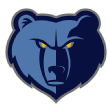
First game: Saturday vs. Wizards
Ivan Rabb: Rabb was thought of as a potential 2016 lottery pick after his freshman season at California. He went back to school and fell to the second round, where the Grizzlies gave up a 2019 second-round pick to take him 35th overall. Rabb's field goal percentage from the field dropped to 48.4 percent from 61.5 percent as a freshman, but he did average a double-double as a sophomore.
Wade Baldwin IV: Baldwin, Karl-Anthony Towns' point guard in high school in New Jersey, had a rough rookie season. He played only 96 minutes after the All-Star break after playing 309 minutes in the first half of the season. The 17th pick in the 2016 draft, Baldwin lost the backup-point guard job to Andrew Harrison and struggled mightily with his 3-point shooting (3-of-22, 13.6 percent) and his scoring inside the arc (35.5 percent on 2-point field goals, 43.9 percent on field goals inside 3 feet). Baldwin is a plus-sized point guard at 6-foot-4, and he has a high ceiling defensively. But he has a lot of work to do to regain the coaching staff's trust as a backup.
Jarell Martin: Starting Grizzlies power forward JaMychal Green is a restricted free agent, and franchise mainstay Zach Randolph just signed with Sacramento. Who wants these minutes? Martin was the first of the glut of young Memphis power forwards as the team's first-round pick (25th overall) in 2015 out of LSU. Although Martin has a developing jump shot, his foot issues have limited his opportunities. Martin also isn't a shot-blocker at 6-foot-10, and in addition to Rabb, the Grizzlies also have 2016 second-round center Deyonta Davis hovering this summer.
Minnesota Timberwolves
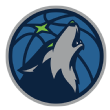
First game: Saturday vs. Raptors
Amile Jefferson: The Timberwolves will have one fewer thing to watch in summer league after 2017 first-round center Justin Patton (16th overall pick) had surgery to repair a broken fifth metatarsal in his left foot. Jefferson went undrafted after breaking his right foot eight months after Duke won the 2015 NCAA title. Jefferson returned to Duke after a medical redshirt for a fifth year, and he averaged 1.9 blocks as a super-senior.
Deonte Burton: How many times do you see 6-foot-5, 250-pound wings?
Marcus Paige: Almost the hero of the 2016 NCAA title game, 2016 second-rounder Paige spent this past season playing for the Salt Lake City Stars. Paige played 32.7 minutes a game, but could only average 2.2 assists per game as he took on more of a shooting guard's role. At 6-foot-1 and 175 pounds, Paige has to show more as a point guard after failing to make the Jazz roster in 2016 training camp.
New Orleans Pelicans
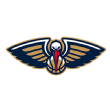
First game: Friday vs. Raptors
Cheick Diallo: New Orleans' 2017 second-round rookie, point guard Frank Jackson, is rehabbing from foot surgery and won't play in Las Vegas. But the 2016 second-rounder, power forward Diallo, is available. Perhaps Diallo builds on what was an intriguing four-game sample to end the 2016-2017 season: averages of 11.0 points, 9.8 rebounds and 1.0 block while shooting 58.1 percent from the field in 23.6 minutes per game.
Jordan Crawford: "Sizzle" is still around on a non-guaranteed deal after averaging 14.1 points in 19 games for the Pelicans, which was Crawford's first action in the NBA since 2013-2014. Though Crawford turns 29 in October, he showed intriguing examples of efficiency that hadn't been present during much of his first four NBA seasons. Crawford made a hard-to-believe 82.6 percent of his attempts inside of 3 feet in a 442-minute sample, and he made 38.9 percent of his 3-pointers to go along with a decent 2.3 assist-turnover ratio. Crawford isn't a good defender, and he packs a lot of attempts into a 20-25 minute role, but he gave New Orleans a shot in the arm during its playoff push in March.
Phoenix Suns
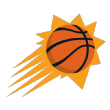
First game: Friday vs. Kings (10:30 p.m. ET, ESPN2)
Josh Jackson: Jackson preferred to go to Phoenix, a team in the midst of the worst playoff drought in franchise history, rather than even work out for the Celtics. We can only hope that the Suns see the Celtics at some point in Vegas, but Jackson had something for this entire draft class when he explained why he thought he was its best player: "I don't think the other guys in this draft really care as much as I do. I don't think they play as hard as I do, period." The fourth overall pick in 2017, Jackson is indeed a versatile two-way player, which is just what the Suns need. He has 3-point range, but his stroke bears watching after he made only 56.6 percent of his free throws at Kansas.
Davon Reed: Reed was a four-year player at Miami (Florida), and he already signed a deal with Phoenix after being a 2017 second-round pick (32nd overall selection). Reed has strong qualities for a 3-and-D wing, as he made 79 3s as a senior (39.7 percent) while being an All-ACC defensive selection after averaging 4.8 rebounds and 1.3 steals per game. The Suns were 28th in defensive rating in 2016-2017, and only the Grizzlies had a worse free-throw attempted rate allowed mark.
Dragan Bender: Remember him? Although power forward Marquese Chriss, the No. 8 pick in 2016, made the all-rookie second team last season, Bender was probably fortunate to receive that Marcelo Nogueira vote after shooting only 35.4 percent from the field in 574 forgettable minutes. The fourth overall pick in 2016, Bender is said to be healthier and bigger (from 225 pounds to 240 pounds) this summer, and ready to showcase "point-forward" ability. Mind you, Bender had only five games all season with more than one assist, but I digress. Bender doesn't turn 20 until November, and folks were probably spoiled by the smashing debut of the 2015 fourth overall pick out of Europe, power forward Kristaps Porzingis. But it isn't asking too much for Bender to show why he was drafted so highly after a rookie season ruined by ankle surgery.
Portland Trail Blazers

First game: Saturday vs. Jazz
Zach Collins: Jalen Rose curiously compared Collins to Bill Laimbeer during the draft, while CSN Northwest went out of its way to not compare Collins to 2012 lottery center Meyers Leonard. Collins is a legit 7-footer, and although he is light at 232 pounds, he has plus athleticism that allowed him to block 1.8 shots in only 17.3 minutes per game at Gonzaga. He has foul issues, but that won't be a problem in Las Vegas, where he gets 10 fouls (until the tournament)!
Jake Layman: A garbage-time favorite along with fellow wing Pat Connaughton, Layman only made 29.2 percent from the field in his 249 minutes. He flashes plus athleticism, though, and is active defensively. The 2016 second-round pick should be safe for next season, but he must show something offensively.
Jordan Adams: A 2014 first-round pick by the Grizzlies, Memphis gave up on Adams after only two seasons of waiting for him to get healthy. Adams has great size at 6-foot-5, 209 pounds, and is still young (turning 23 Saturday). This is his first chance to show that he is over the cartilage-transplant surgery that wrecked his 2016 summer and interrupted his career.
Sacramento Kings
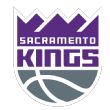
First game: Friday vs. Suns (10:30 p.m. ESPN2)
De'Aaron Fox: Fox was the fifth pick in the draft and the third freshman point guard selected after Markelle Fultz went to Philadelphia and Ball went to the Lakers. Fox also was picked one spot after Pacific rival Phoenix selected Jackson. Fox's rookie-season role took a hit after the Kings signed point guard George Hill to a three-year deal, but there's little risk in letting Fox earn the job from a respected veteran, and one who can shoot much better than Fox, whose jumper will be the part of his game most under the microscope as a rookie. At 6-foot-3 with serious wheels and twitch, Fox is a key player to watch, particularly with so many top young players to share the ball with in Vegas.
Harry Giles: Giles only played in one game at Duke for more than 20 minutes, and he fouled out of that January contest against Boston College after scoring 12 points in 24 minutes. Giles had one of the 10 longest wingspans at the NBA combine (7-foot-3¼) while showing decent athleticism despite multiple knee injuries. The Sacramento front court is crowded even when you just include the young players, as Giles joins 2016 lottery center Georgios Papagiannis and 2016 first-round power forward Skal Labissiere. But the upside for Giles, a former No. 1 overall recruit out of high school, is tremendous.
Buddy Hield:: Last summer, Hield had his game picked apart while suiting up for the Pelicans. But he showed a lot more to his game once arriving in Sacramento in the DeMarcus Cousins trade. Hield only made 51.7 percent field goals inside of 3 feet, 41.7 percent inside the arc and 36.9 percent of his 3-pointers in 57 games with the Pelicans. Those numbers improved to 65.7 percent, 52.5 percent and 42.8 percent, respectively, in 25 games with the Kings. Hield still didn't demonstrate an ability to consistently make plays for others, and he doesn't get to the free throw line enough; he was never a good passer in four seasons at Oklahoma, so there's nothing to suggest that will turn around in the pros. But Hield can build off his midseason improvement by showing he can dominate as a scorer.
San Antonio Spurs
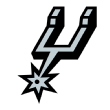
First game: Saturday vs. Heat
Derrick White: Sure, the Spurs were the first team to take a senior in the 2017 draft. But White lasted until the 29th pick, the latest the first senior was ever selected, and 20 years after Wake Forest senior Tim Duncan went first overall. Also, White only spent one season playing Division I basketball; he spent his first three at Division II Colorado Springs. White joins a Spurs team that hasn't added a veteran point guard to go with the re-signed Patty Mills, the injured Tony Parker, and 2016 first-round point guard Dejounte Murray. White was outstanding at Colorado, averaging an efficient 18.1 points at 50.7 percent from the field and 39.6 percent from 3. White also was a playmaker on defense. We'll see if the Spurs find a way to get 1980 fourth-round pick Calvin Roberts on the roster to join White on the way from Utah to Nevada!
Utah Jazz

First game: Saturday vs. Trail Blazers
Donovan Mitchell: It cost the Jazz the 24th pick in the 2017 draft and underwhelming 2015 lottery power forward Trey Lyles to move up to get Mitchell at 13. Mitchell was a stud in the Utah Summer League, showing eye-popping athleticism to go along with strong defense. Mitchell is only 6-foot-3, but he has a 6-foot-10 wingspan and a vertical of just more than 40 inches at 211 pounds. Mitchell could be looking at heavy rotation minutes after the departure of Gordon Hayward in free agency.
